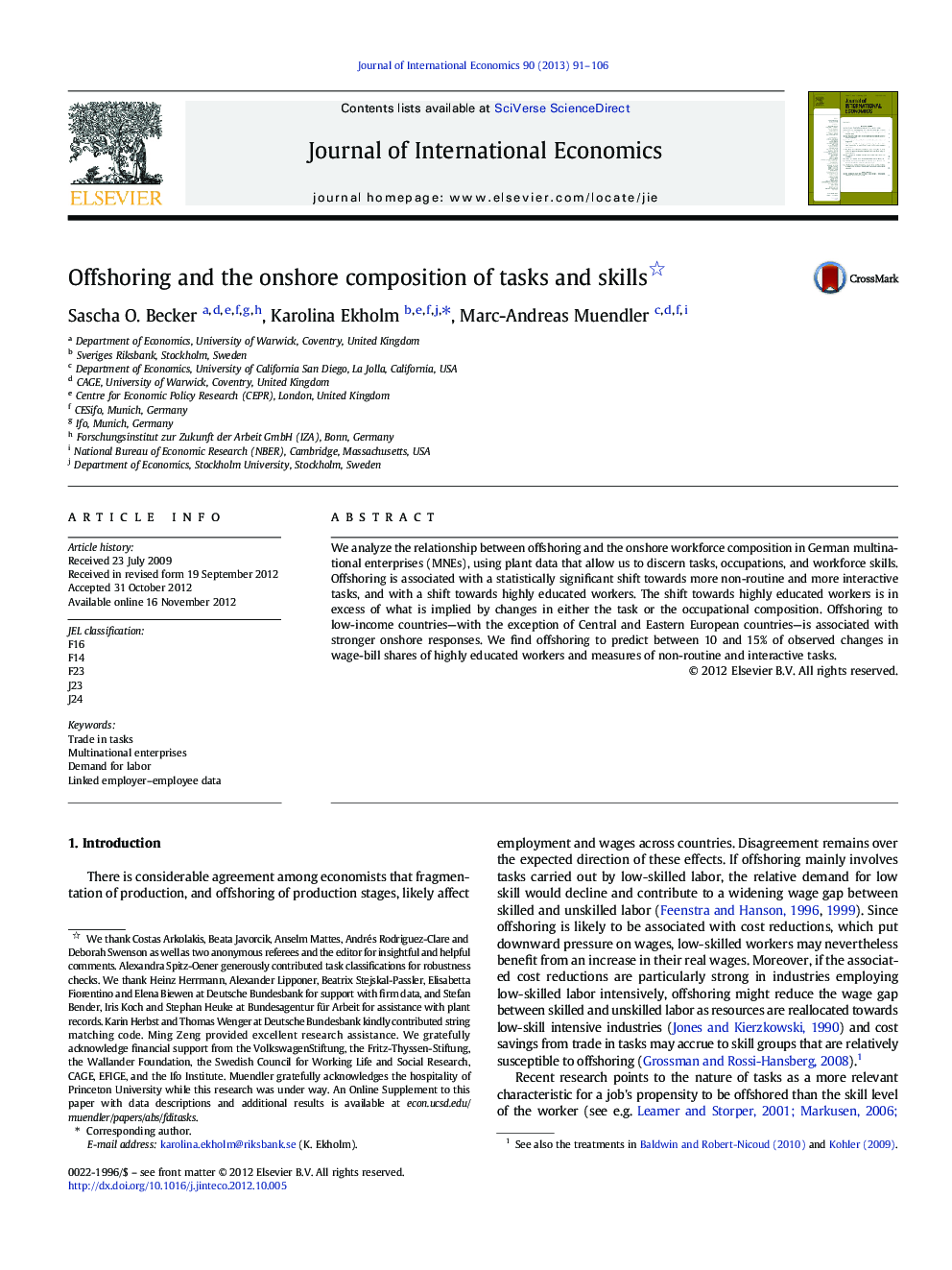| Article ID | Journal | Published Year | Pages | File Type |
|---|---|---|---|---|
| 963091 | Journal of International Economics | 2013 | 16 Pages |
We analyze the relationship between offshoring and the onshore workforce composition in German multinational enterprises (MNEs), using plant data that allow us to discern tasks, occupations, and workforce skills. Offshoring is associated with a statistically significant shift towards more non-routine and more interactive tasks, and with a shift towards highly educated workers. The shift towards highly educated workers is in excess of what is implied by changes in either the task or the occupational composition. Offshoring to low-income countries—with the exception of Central and Eastern European countries—is associated with stronger onshore responses. We find offshoring to predict between 10 and 15% of observed changes in wage-bill shares of highly educated workers and measures of non-routine and interactive tasks.
► Foreign employment expansions predict shifts to advanced tasks at German multinationals (MNEs). ► Advanced tasks are non-routine and interactive, based on a German survey of workplace tool uses. ► Shifts to advanced tasks are particularly strong for employment offshoring to developing countries. ► However, shifts to advanced tasks alone cannot explain increased skill demand at German multinationals.
